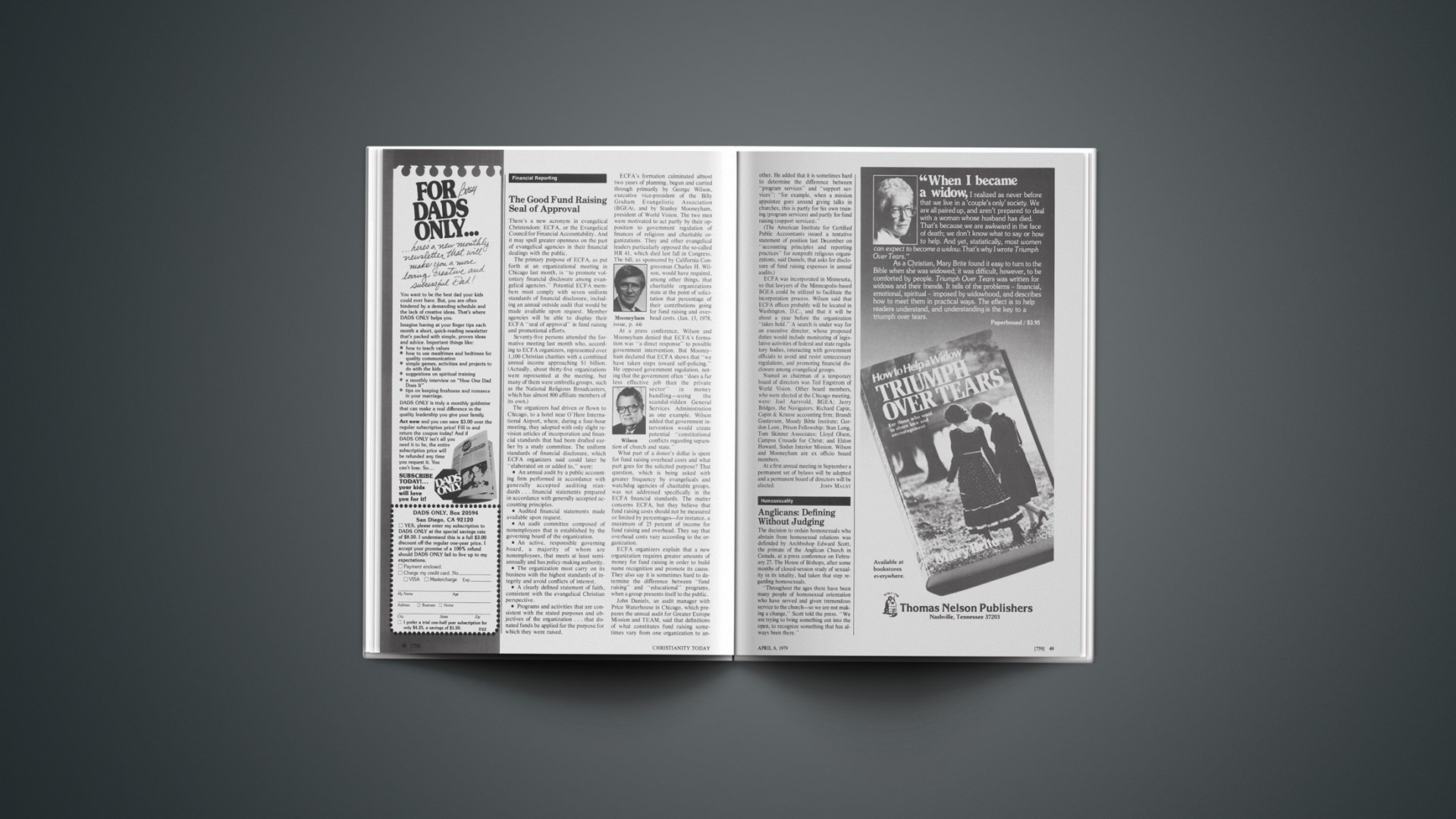The decision to ordain homosexuals who abstain from homosexual relations was defended by Archbishop Edward Scott, the primate of the Anglican Church in Canada, at a press conference on February 27. The House of Bishops, after some months of closed-session study of sexuality in its totality, had taken that step regarding homosexuals.
“Throughout the ages there have been many people of homosexual orientation who have served and given tremendous service to the church—so we are not making a change,” Scott told the press. “We are trying to bring something out into the open, to recognize something that has always been there.”
The primate said that his church was trying to face up to “the conditions that actually exist in our society and to think about them with the mind of Christ.” Asked if he was not watering down the teaching of the Bible, the archbishop replied: “We have not modified Scripture. We have made an attempt to understand it at a deeper level.” He made a distinction between homosexual orientation and sexual relations. “Homosexual orientation is not sinful, except in the sense that it may have been conditioned within a sinful world.”
In reply to a question as to whether the church considers homosexual relations to be sinful, the primate said: “it is not my job or the job of the church to be always defining and judging things.”
A member of Integrity, an organization of homosexuals within the Anglican Church in Canada, agreed with the distinction but regretted that the House of Bishops had restricted ordination to those who would refrain from having homosexual relations.
The man, identified only as John, was a member of the task force that had helped the bishops to reach their decision. “It was scary being a token fag in front of all those bishops,” he told the press. John was concerned that all celibate Anglican priests might now be suspected of being homosexual. “I hope that ministers will not be forced into marriage to avoid it,” he said. John expressed admiration for the courage of the bishops in making their decision.
Scott said that he hoped there would be no discrimination against priests of homosexual orientation when they came up for promotion. Any disciplinary action taken against a priest who became actively homosexual after ordination would be within a pastoral context, he declared.
A double standard between the homosexual and the heterosexual whose ordination is not dependent upon a promise of abstinence has been created by this decision, Editor Jerry Hames says in the March issue of The Canadian Churchman, the national paper of the Anglican Church in Canada. The editorial claims the decision also sets up a double standard between church and society. The House of Bishops had stated a year ago that homosexuals are entitled to equal protection under the law, including the right to employment. Now the bishops appear to be saying that while they expect society to abide by one set of rules, the church will abide by another set.
The greatest need of homosexual priests is for a pastoral relationship with their bishops, says the editor. “Unfortunately, the bishops’ statement does not encourage this; the homosexual ordinand now knows that his case has been prejudged and, regardless of what he says, his concerns can be resolved only by a promise of abstinence. There is nothing in the statement to encourage a homosexual ordinand to declare himself to the bishop.”
“The bishops have not yet come to grips with the issue of sexuality,” Hames writes. “They have provided a dogmatic statement of position without letting the rest of the church know the reasons underpinning their decision.… In theory, the statement offers a promise of equal acceptance to Anglican homosexuals. In practice, it does nothing substantial to erase the mistrust, alienation, and fear that is a constant companion to every homosexual person in the church.”
In response the primate issued a statement which said in part: “I do not believe it is a necessary contradiction to accept a person’s orientation and yet ask him to abstain from giving expression to the orientation in certain types of activity. We, in fact, do this to persons in a wide variety of situations in life. If it were completely clear that homosexuality is totally genetically determined then a charge of double standard could logically be defended.… People who accept leadership roles in church and society have historically been expected to accept standards beyond the average as they are expected to model conduct which it is hoped will be emulated. The bishops have also recognized the right of all to the love, acceptance, and pastoral care of the church.”
Scott made it clear that the church confines its nuptial blessing to heterosexual marriages; it cannot authorize clergy to bless homosexual unions. The relationships of homosexuals must not be confused with holy matrimony, and the church must do nothing which appears to support any such suggestion. He called upon Anglicans to discover the ability to uphold basic Christian values, and at the same time to minister with love and concern to those who have not been able to live up to Christian standards.










